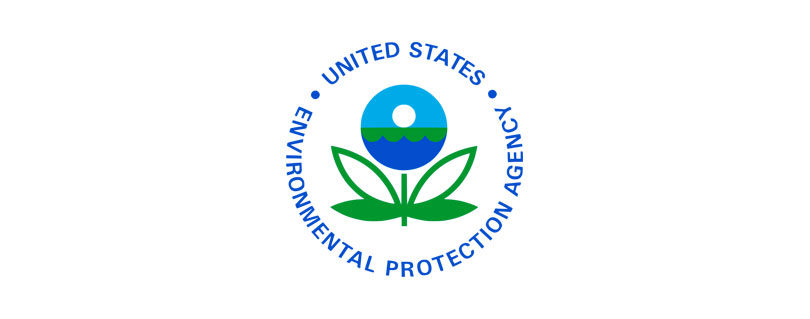Biden-Harris Administration and EPA Announce Delivery of Historic Water Infrastructure Funding from the Bipartisan Infrastructure Law to Wisconsin
Publilshed by the U.S. Environmental Protection Agency (EPA)
CHICAGO (October 19, 2022) — Today, U.S. Environmental Protection Agency announced $79 million in Bipartisan Infrastructure Law funding to the state of Wisconsin for water infrastructure improvements.
President Biden’s Bipartisan Infrastructure Law allocates more than $50 billion to EPA toward repairing the nation’s essential water infrastructure, in turn helping communities access clean, safe, and reliable drinking water, prevent flooding, collect and treat wastewater to protect public health, and safeguard vital waterways.
“President Biden has been clear—we cannot leave any community behind as we rebuild America’s infrastructure with the Bipartisan Infrastructure Law,” said White House Infrastructure Coordinator Mitch Landrieu. “Because of his Bipartisan Infrastructure Law, nearly half of the additional SRF funding will now be grants or forgivable loans, making accessing these critical water resources easier for small, rural and disadvantaged communities.”
“The historic investment from the Bipartisan Infrastructure Law is accelerating critical infrastructure upgrades in communities, especially those overburdened by water challenges,” said EPA Regional Administrator Debra Shore. “EPA is proud to partner with Wisconsin to maximize the benefits of these resources – including modernized infrastructure, lead service line replacement, and increased resiliency to climate impacts – in communities where they’re most needed.”
“Every Wisconsin community needs access to clean drinking water and an environment free of toxic chemicals. Now we have an investment from the EPA that will create jobs and help make that a reality,” said Senator Tammy Baldwin. “This is a major federal investment will help local communities in Wisconsin replace dangerous lead service lines and address PFAS contaminants so that we can provide safe and clean drinking water to people across our state. This federal funding will also help Wisconsin rebuild wastewater and storm water management systems, and build stronger infrastructure that is more resilient to damage from extreme weather events and flooding. We also have federal support to better protect our Great Lakes and waterways to ensure that they continue to serve as vital economic and recreational assets. I am proud to stand with the Biden Administration and deliver results for the people of Wisconsin.”
“All of our communities deserve clean drinking water. One of the reasons why I was excited to vote in support of the Bipartisan Infrastructure Law was its major investments in improving our water infrastructure – a major priority for me and my district,” said Congresswoman Gwen Moore. “These funds are long overdue and vital to protecting the health of my constituents and Wisconsinites statewide.”
“Every Wisconsinite should have access to safe, clean drinking water. Period. We’re proud of the progress we’ve made over the last three years to invest in our water infrastructure—from declaring 2019 the Year of Clean Drinking Water to investing in farmer-led water quality efforts to signing some of the first bipartisan bills addressing clean water in years,” said Wisconsin Governor Tony Evers. “I look forward to continuing this important work with support from the historic level of funding from the Bipartisan Infrastructure Law to help us make significant progress on ensuring clean water for every kid, family, and community in our state.”
“These once in a generation investments will allow Wisconsin to increase our commitment to preserving and enhancing our natural resources in disadvantaged communities, accelerate progress on lead service line replacements, address PFAS contamination, and support infrastructure improvements for our local communities to plan for climate resiliency,” said Wisconsin Department of Natural Resources Secretary Preston D. Cole.
“Milwaukee’s history, industry and recreation were largely built around water, and water is key to our future,” said Milwaukee Mayor Cavalier Johnson. “The investments made possible by the Bipartisan Infrastructure Law will improve both access to, and the quality of, our most important natural resource. That will positively affect the life of every resident here in my city.”
“These investments will help address the water infrastructure crisis that is threatening our drinking water, our public health, and our communities,” said Healing Our Waters-Great Lakes Coalition Director Laura Rubin. “These investments will provide much-needed help to the people who have been most impacted by pollution and environmental harm – and will put the Great Lakes region on the path to providing clean, safe, and affordable drinking water for all.”
“Low-income, Black, and Brown communities in Milwaukee have been disproportionately burdened by crumbling and unsafe water infrastructure. It’s good to see this money coming in, but it’s just a start,” said Brenda Coley, Milwaukee Water Commons. “There is still a lot of work to be done to empower communities, invest funds where they’re needed most, and ensure that all have access to safe, clean water.”
Wisconsin has been awarded $79 million in capitalization grants from the Bipartisan Infrastructure Law through its State Revolving Funds (SRFs) program. These grants supplement $43 million in regular FY22 funding to Wisconsin’s SRFs program. An additional $64 million in FY22 capitalization grants from the Bipartisan Infrastructure Law are forthcoming.
EPA’s SRFs are part of President Biden’s Justice40 initiative, which aims to deliver at least 40% of the benefits from certain federal programs flow to underserved communities. Furthermore, nearly half the funding available through the SRFs thanks to the Bipartisan Infrastructure Law must be grants or principal forgiveness loans that remove barriers to investing in essential water infrastructure in underserved communities across America.
Wisconsin has submitted and obtained EPA’s approval of their plans for use of the FY22 funding announced today. Capitalization grants will continue to be awarded, on a rolling, state-by-state basis, as more states submit applications; states will also receive awards over the course of the next four years. Once grants are awarded, state programs will begin to deliver the funds as grants and loans to communities across their state.
The Bipartisan Infrastructure Law presents the largest-ever funding opportunity for investing in water infrastructure. Find out more about Bipartisan Infrastructure Law programs and other programs that help communities manage their water resources on EPA’s Bipartisan Infrastructure Law page.
Read the full article at: https://www.epa.gov/newsreleases/biden-harris-administration-and-epa-announce-delivery-historic-water-infrastructure-17



